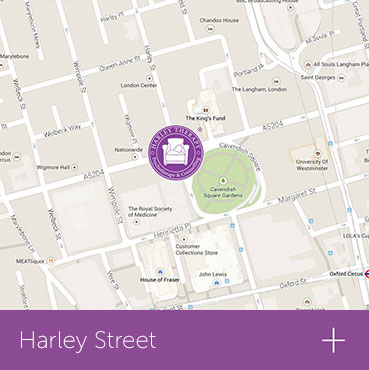Have you, or a member of your family, not felt quite yourself since a head injury, illness, or progression of a neurological condition? Or are you experiencing neurological symptoms for which doctors have found no physical cause? Independent neuropsychiatrists practising from Harley Therapy consulting rooms can provide assessments to help clarify what is happening and advise on next steps.
Important note: All clinical decisions, including diagnosis, treatment planning, and referrals, are made solely by the independent neuropsychiatrist. Harley Therapy provides consulting rooms and administrative support only.
What is Neuropsychiatry?
Neuropsychiatry sits at the interface of neurology and psychiatry. It addresses conditions where brain disorders have psychological symptoms, such as dementia, or where neurological symptoms exist without a clear physical cause, such as conversion disorder (functional neurological disorder).
While psychiatry considers how external factors affect your wellbeing, neuropsychiatry also looks at internal factors — including genetic, neurological, and neurochemical influences on thoughts, moods, and behaviours.
How a Neuropsychiatrist can Help
Independent neuropsychiatrists can:
- Listen to your concerns and provide clarity on complex symptoms
- Carry out a detailed assessment of neurological and psychiatric issues
- Develop a personalised plan for further management, which may include referrals to other independent health professionals such as occupational therapists, physiotherapists, or counselling psychologists
- Recommend additional assessments or investigations if clinically indicated
Common Neuropsychiatric Disorders
Conditions with known neurological origin:
- Post-concussional syndrome / head injury
- Chronic degenerative disorders (multiple sclerosis, Parkinson’s, Huntington’s)
- Dementia
- Epilepsy
- Encephalitis and other CNS infections
- Stroke / cerebrovascular accidents
- Tourette’s syndrome
Conditions with neurological symptoms but no clear physical cause:
- Conversion disorder / functional neurological disorder
- Chronic fatigue syndrome (CFS)
Independent Neuropsychiatrist Practising from Harley Therapy
Dr. Naresh K. Buttan is an independent general adult psychiatrist with 15+ years of experience. He previously served as the director for higher training in general adult and old age psychiatry at Health Education England. His special interests include neurobiology, transcultural psychiatry, migration and mental health, post-traumatic shock disorder (PTSD), epigenetics in schizophrenia and bipolar mood disorders, and mental health laws. (See his extended profile).
He is available to assess and advise patients between the ages of 18 to 65 on the psychiatric symptoms of the following:
- post concussional syndrome, head injury
- epilepsy
- CNS infections such as HIV, HepB/HepC and encephalitis
- chronic degenerative disorders such as multiple sclerosis, Parkinson's, Huntington's disease
- CVAs/ stroke/ space occupying lesions
- general medical conditions such as substance abuse.
Dr Buttan manages all aspects of clinical care, including assessment, diagnosis, treatment planning, and referrals. Harley Therapy provides rooms and administrative support only.
Neuropsychiatry treatment plan & fees with Dr Buttan
- Dr Buttan's fee for this assessment is £2,240
- This fee includes the initial 90-minute session which includes a generic psychiatric assessment and the impact of neuropsychiatric conditions.
- You will need to bring all of your relevant medical reports and documentation with you, as well as sending these ahead of your session.
- Should you require further assessments, such as the Luria Nebraska Battery or ACE III, these will require an additional 60 to 90 minute appointment. Imaging studies may be referred externally.
All recommendations, including any referrals or treatment advice, are provided solely by the independent neuropsychiatrist.
Next steps
Take the first step towards feeling more like yourself again! To arrange an assessment with an independent neuropsychiatrist practising from Harley Therapy rooms:
- Call us 0345 474 1724
- Use our confidential online booking form
Harley Therapy provides facilities and support while theneuropsychiatrist manages all clinical care.
Practice Address (for independent clinicians):
10–12 Harley Street, London, W1G 9PF
View the Experts
How to book your appointment
Call us now on 0345 474 1724 OR book online
All practitioners are qualified and accredited with reputable professional associations.

Neuropsychiatry can help with:
- Alzheimer's
- brain injury
- chronic fatigue syndrome
- conversion disorder
- dementia
- Parkinson's disease
- Tourette syndrome.
Meet the Experts
Enquiry Form
To make an enquiry, please fill in this confidential form. Our dedicated administrators will review your needs and get back to you as soon as possible.
What are examples of neuropsychiatric disorders?
Neuropsychiatric disorders include medical conditions that can affect your emotions and behaviours, such as dementia, epilepsy, stroke, brain injury and concussion. Or it could be that you have symptoms of an illness but there is no known cause, and doctors suspect there might be a psychiatric link. This includes things like conversion disorder, now more accurately called 'dissociative neurological symptom disorder', where you have serious physical symptoms such as paralysis but without medical cause.
Are anxiety and depression neuropsychiatric disorders?
You could argue that they are 'neuropsychiatric', as they both affect our brains and have physical symptoms. But all forms of mental illness tend to also affect our body, even if just with exhaustion. And 'neuropsychiatric disorders' more accurately describes conditions that cause damage to the nervous system (dementia, epilepsy, Tourette's, brain injury) or with very serious physical symptoms without known medical cause (conversion disorder where some people even have paralysis or are bedridden). These differences aside, a neuropsychiatrist who treats neuropsychiatric disorders will first be trained in general psychiatry. So they will also be able to treat general mental health issues like depression and anxiety, which often occur alongside more serious neuropsychiatric issues.
What is the difference between a psychiatrist and a neuropsychiatrist?
A neuropsychiatrist would have done the training to be a general psychiatrist and then decided to specialise in neuropsychiatric disorders. This can mean an additional MSc in neuropsychiatry. So they will know how to do all the things a general psychiatrist does, but can also do things like read brain scans and carry out specialised testing for brain issues.



.webp)
